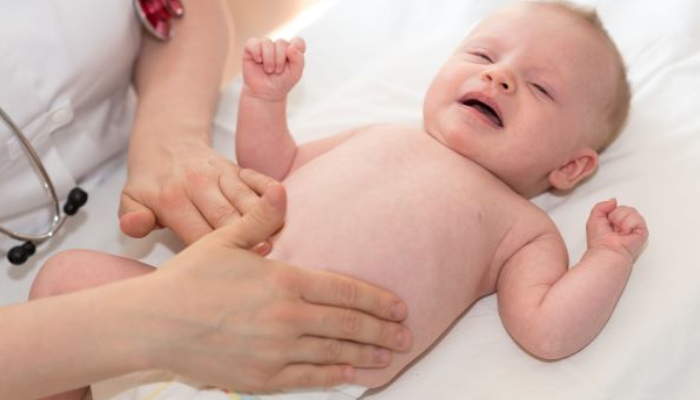With advancing technology, ultrasound machines allow doctors to see your unborn baby’s organs more clearly. Often times, babies are found to have enlarged kidneys while still in the uterus- your doctor may use the term “hydronephrosis”, i.e, “antenatal hydronephrosis” or “foetal hydronephrosis.”
Hydronephrosis essentially means that there’s urine backed up in your baby’s kidneys. It may be unilateral, meaning that the kidney on only one side is affected, or bilateral, meaning that both kidneys are affected. The causes for hydronephrosis in the unborn child are numerous, and the treatments vary based on the cause.
The urinary tract
The urinary tract consists of the kidneys, the ureters, the urinary bladder and the urethra. The primary function of the kidneys is to manufacture urine by filtering out solutes and waste products from the blood. The urine from each kidney is transported to the bladder by a fine muscular tube called the ureter. The urinary bladder stores urine and then throws it out via the urethra.
When your doctor assesses your baby’s urinary tract, some of the things he/she looks for are the following
- Are both kidneys are present?
- Are both kidneys are positioned normally?
- Is there any enlargement of one or both kidneys? (Is there any hydronephrosis ?)
- Are the ureters dilated?
- Are there any cysts in the kidneys?
- Can the bladder be seen to fill and empty?
- Is there an abnormality in any other structure or organ?
- Is there enough fluid around the baby?
What if a problem is detected in my baby’s urinary tract? Who can treat my baby?
The most common problem detected in the urinary tract of an unborn baby is hydronephrosis. The condition of the rest of the urinary tract affords a clue to the cause of hydronephrosis.
In India, paediatric surgeons and paediatric nephrologists are trained to treat conditions of the kidneys in children. During pregnancy, your doctor may ask you to follow up more closely with frequent ultrasounds. The ultrasound findings will offer your doctor some clues about how severely the bay has been affected. Once the baby is born, further investigations are usually needed to determine the course of action. Typically, these investigations include an ultrasound, a special xray called a voiding cystourethrogram ( VCUG; also commonly called a micturating cystourethrogram or MCU) and sometimes, renal scintigraphy studies. Depending on the findings of these tests, treatment varies from immediate surgery to simple observation. Oftentimes, low dose antibiotics are recommended to prevent urinary tract infection in the baby. In all cases, strict follow up and close monitoring of the urinary system is required.
What should I do, now that I know I’m carrying a baby with hydronephrosis?
Relax. Remember that your baby is growing, and so is its renal system. As of today, ante natal therapies have not been proven to be helpful in changing long term outcomes for hydronephrosis. Familiarise yourself with the team that is going to care for your baby once it arrives. Have a detailed discussion about the team’s plan for the baby. Be prepared to stay in the hospital for a few days after you deliver. Talk to your doctors about all your concerns for yourself and for your baby. Care for yourself as your gynaecologist has advised, and keep a positive attitude.

